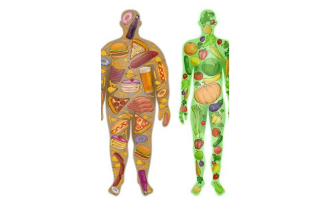Break your fast correctly: myths and facts about breakfast

Is breakfast one of the most important meals in our diet plan? There are many misconceptions about eating breakfast today. I will briefly explain the facts and myths surrounding breakfast in this article.
Breakfast is the first meal after fasting overnight. Today, opinions vary on its importance. Regular meals, including breakfast, provide essential energy and nutrients for your body’s functions. Some studies suggest that if a person obtains all necessary nutrients from other meals, breakfast may not be essential for them. Let us explain briefly.
Having breakfast regularly beneficial:
Several observational studies (1, 2) are there that establish that having a regular breakfast helps to reduce the risk of some chronic diseases like:
Diabetes,
High blood pressure
High cholesterol level
Obesity,
Stroke,
Cardiovascular disease.
Studies have shown that people who eat breakfast regularly tend to be healthier; however, they cannot prove that breakfast is the sole cause of this. Therefore, it is better to say that people who eat breakfast are more likely to maintain a healthy lifestyle and dietary habits than those who skip breakfast.
Breakfast is one of the most important meals:
The meaning of breakfast is to break your fasting after overnight sleep. There are numerous benefits to eating breakfast, but it's crucial to pay attention to portion sizes, as excessive amounts can negatively impact your health.
Sometimes people eat breakfast heavily, but they compromise their other meals which affects their body weight. Yes, having breakfast is indeed a good dietary habit but it does not mean to overstuff yourself. Therefore, to benefit from breakfast, choose the right foods and portions.
Breakfast helps to lose weight:
Breakfast alone cannot change your body weight. Various factors, including eating habits, physical activity, stress levels, age, influence weight loss. However, having a healthy breakfast can support your weight loss journey. Aim to include nutritious options on your plate, such as protein, healthy fats, whole grain cereals, and seasonal fruits and vegetables, in appropriate portions which help to achieve your goal successfully.
Skipping breakfast is the cause of weight gain:
This statement is not entirely true; it depends on how you approach the situation. Regularly skipping breakfast for an extended period is not advisable. However, occasionally missing breakfast does not significantly harm your health. Many people skip breakfast due to their work schedules and instead have brunch, which combines breakfast and lunch as their first meal of the day. Additionally, some individuals following intermittent fasting diets break their fast in the late morning, depending on their personal preferences. This does not necessarily negatively impact their weight loss efforts or lead to weight gain.
A 16-week study (3) involved 309 men and women who both skipped and ate breakfast during specific periods. The outcome showed no significant changes in weight loss.
The key is to ensure that when you break your fast, you choose healthy food. A common situation is that when people skip breakfast, they feel very hungry from fasting and may lose control over their food choices and portion sizes. As a result, this can affect their body weight. Therefore, it is essential to focus on having a healthy first meal in the right amounts, rather than simply skipping it.
Breakfast makes you healthier:
Breakfast alone may not transform your lifestyle or eating habits, but starting your day with healthy foods can provide numerous benefits. Many studies have shown that individuals who eat healthy breakfasts tend to be healthier than those who skip this meal.
An observational study in 2018 explained that individuals who skip breakfast tend to consume higher-calorie, fat-rich foods compared to those who eat breakfast.
Starting your day with healthy eating habits helps provide energy, keeps you satisfied, helps control overeating, and may reduce the risk of chronic diseases. However, if you only focus on having a healthy breakfast but compromise the quality of your other meals, it can negatively affect your health. To be truly healthy, it's important to maintain overall good food habits and lifestyle choices; relying on just a healthy breakfast is not enough to achieve better health.
What you should include in your breakfast:
Soaked or boiled whole-grain
Upma
Poha
Dosa
Idle
Egg
Boiles or sprouted Chickpeas or beans
Sandwich with low-fat cheese, cucumber, tomato
Sauteed vegetables
Seasonal fruits
Nuts, etc.
Bottom line:
There is limited evidence suggesting that skipping breakfast has negative effects on the body. However, eating a healthy breakfast is generally a good practice for starting your day well. It can help you feel energetic and satisfied while providing essential nutrients that your body needs. Fasting for a long time regularly is not a good practice. However, if you do skip breakfast, don't feel guilty; just make sure to choose healthy foods in the right quantities when you eat your first food. The important thing is to adjust your meal plan according to your flexibility to maintain a healthy lifestyle and meet all your nutritional needs. Consult an expert to prepare a healthy diet plan according to your flexibility, if you are getting confused.












0 Comments